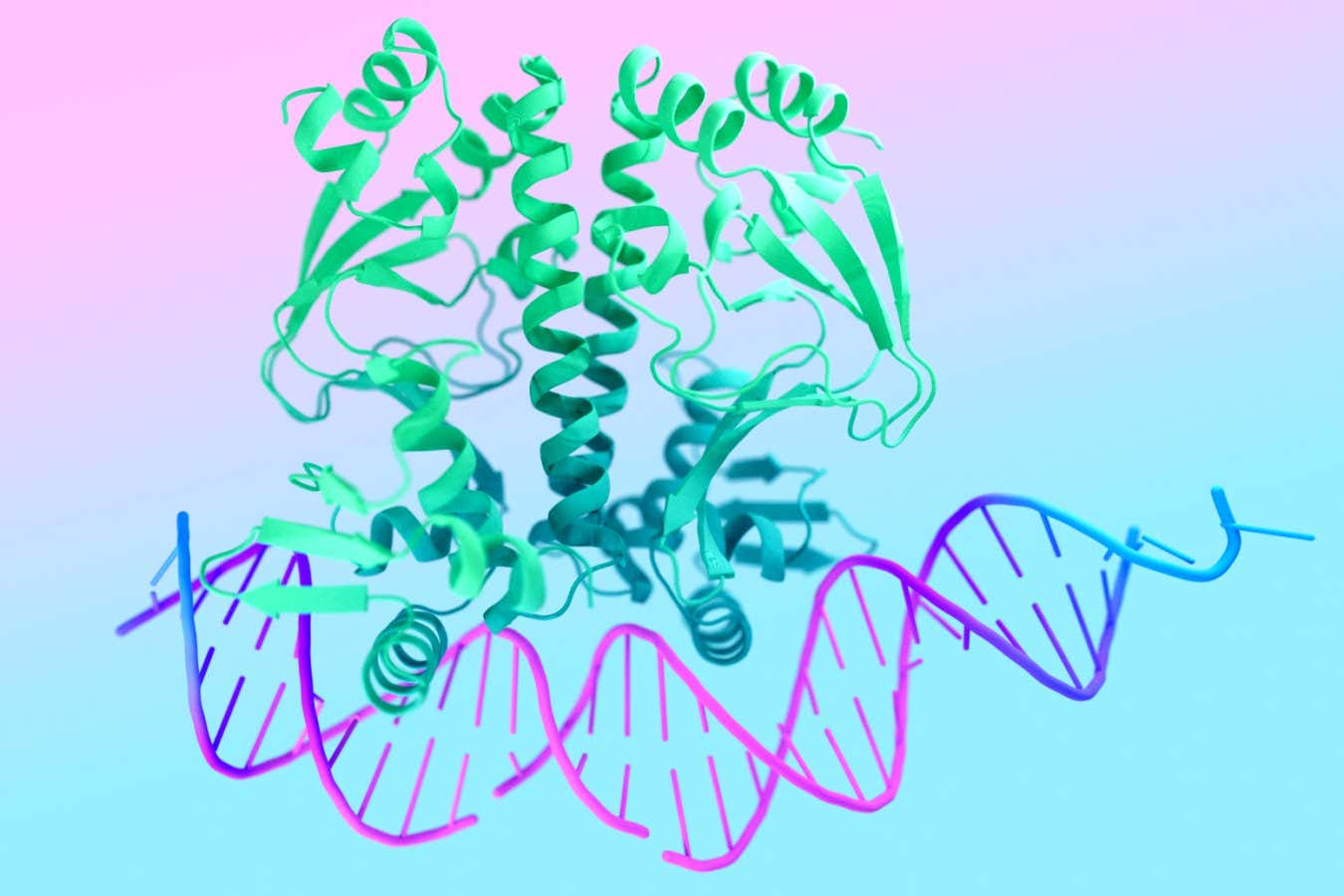The latest version of the AlphaFold AI can help biologists predict how proteins interact with each other and other molecules, which is a boon to pharmaceutical research
By Matthew Sparkes
8 May 2024
Visualisation of a protein binding to a DNA molecule
Science Photo Library/Alamy
An artificial intelligence system can now determine not only how proteins fold but also how they interact with other proteins, drug molecules or DNA. Biochemists and pharmaceutical researchers say the tool has the potential to vastly speed up their work, such as helping to discover new drugs.
Proteins, which play many important roles in living things, are made up of chains of amino acids, but their complex 3D shapes are difficult to predict.
Read more
How this moment for AI will change society forever (and how it won't)
Advertisement
The AI company DeepMind first announced in 2020 that its AlphaFold AI could accurately predict protein structure from amino acid sequences, solving one of the biggest challenges in biology. By the middle of 2021, the company said that it had mapped 98.5 per cent of the proteins in the human body.
Now the latest version, AlphaFold 3, is able to model how proteins, including antibodies, interact with each other, as well as with other biomolecules such as DNA and RNA strands. DeepMind says the accuracy of its predictions is at least 50 per cent higher than existing methods.
Most drug molecules function by binding to specific sites on proteins. AlphaFold 3 could rapidly speed up the development of new drugs by creating a fast way to test how candidate drug molecules interact with proteins in a computer before running lengthy and expensive laboratory tests.
